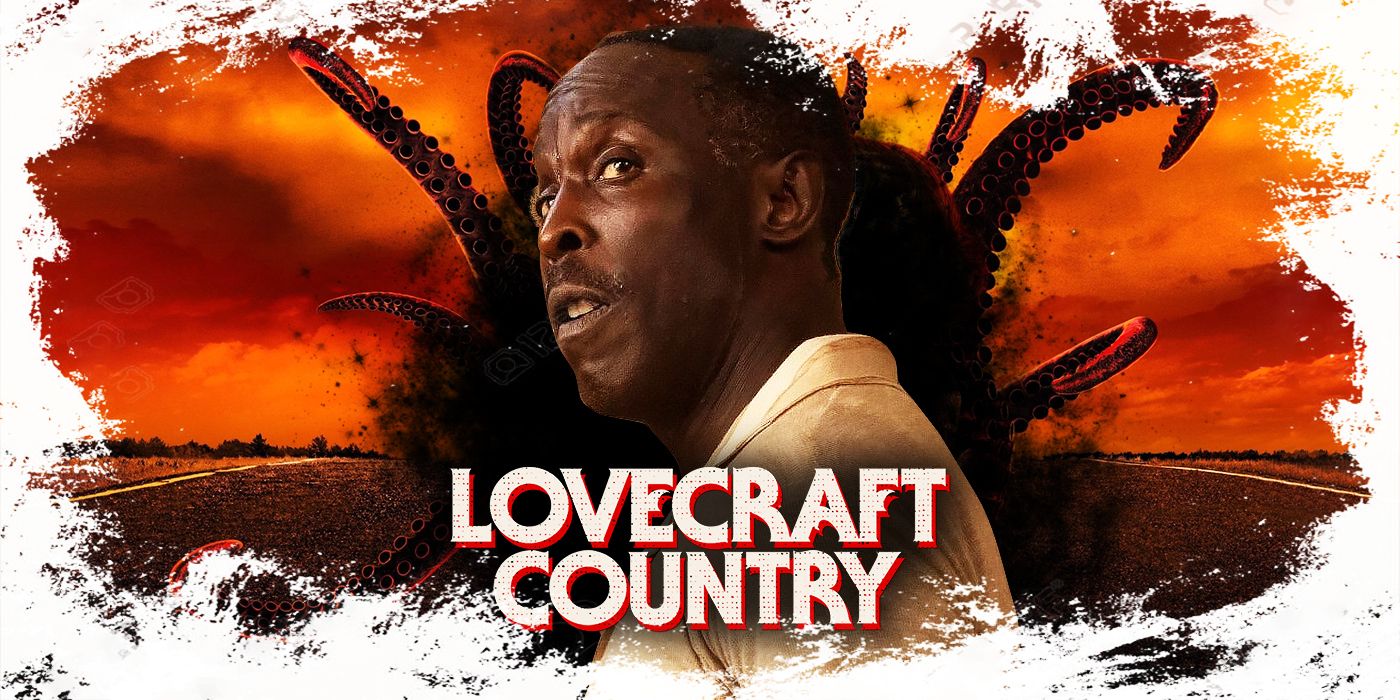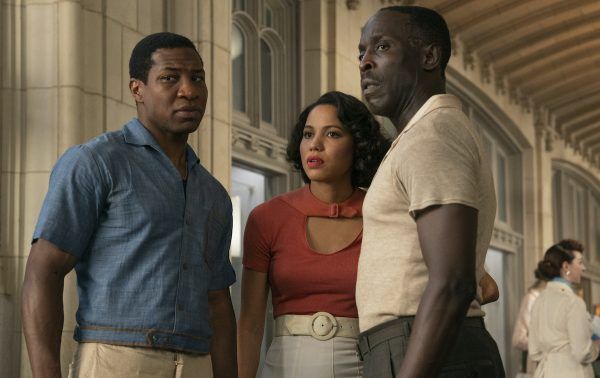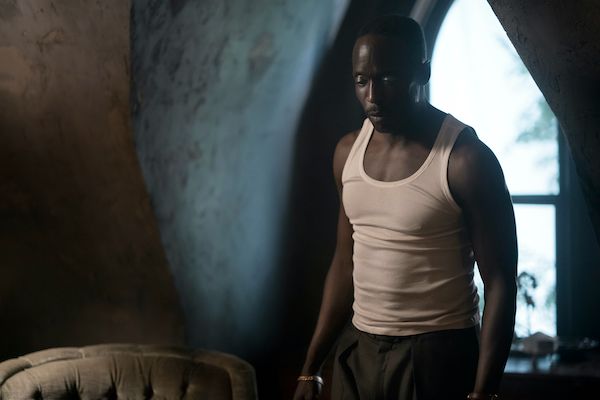[Editor's note: The following contains spoilers for Lovecraft Country.]
When Lovecraft Country premiered on HBO in August of 2020, audiences were treated to the gripping, suspenseful story of Atticus “Tic” Freeman (Jonathan Majors), a young black man trying to save his loved ones from the schemes of an age-old cult steeped in legend and the supernatural. Led by showrunner Misha Green and adapted from Matt Ruff’s novel of the same name, the show gave audiences a new take on Lovecraftian horror through the lens of the black experience in the United States during the 1950s. At the time, fans of Lovecraft Country did not yet know just how special the series would be and they looked forward to more from Misha Green’s creative approach to the show. Season 1 ended with a conclusive, heroic ending for Tic, but many of the supporting characters were set up for further potential stories to explore — such as Tic’s cousin Diana Freeman (Jada Harris) whose horrific coming-of-age tale leads to her gaining a robotic arm. With the critical and popular success of the show, a second season was to be expected.
So when news of the show’s cancelation was revealed this past July, as per Deadline, almost a year after the show’s initial release, it came as a shock. To add on to fans’ disappointment, Michael K. Williams’ death earlier this September was met with heartbreak from costars, collaborators, and audiences who’ve admired him and his work throughout the years. As Tic’s absent father Montrose Freeman, Williams portrayed the struggle of a closeted gay man and failed parent. He elevated the show, bringing with him his talents and gravitas from critically acclaimed shows like The Wire and The Night Of. As one of Williams’ final performances, and from the sheer bold approach of the show’s blending of supernatural horror with social commentary, Lovecraft Country deserves a retrospective look at its best moments of storytelling, performances, and scares.
For those who hadn’t read Ruff’s novel, the premise of a black family fighting off a white supernatural cult in 50s U.S. might have been difficult to comprehend, but it was no less an intriguing plot. Fortunately, the first episode of Lovecraft perfectly captured the stakes of the story and its characters — not only the supernatural dangers that threaten the Freeman family but also the real-life dangers faced by African Americans in Jim Crow United States. The opening scene alone is chock full of significance. Within Tic’s montage of a dream, black and white scenes of the Korean War are juxtaposed to the colorful and sensational UFOs and Cthulu monsters in the sky. A pink alien woman descends from a ship and embraces Tic, hinting at his romance with Jamie Chung's role as Ji-ah and her monstrous form as a succubus. Tic’s dream sequence then ends on a battle between one of the Cthulu monsters and Jackie Robinson. This opening scene showcases what Lovecraft Country did best: juxtaposing supernatural evils with the truly horrifying evils of racism.
One of the most suspenseful scenes of the show is also in Episode 1, appropriately titled “Sundown.” After embarking on their journey to save Tic’s father (Williams), Tic, Uncle Geroge (Courtney B. Vance), and Letti (Jurnee Smollett) find themselves chased out of a sundown town — an all-white town where people of color were expected to leave by sundown — by cops. The percussive background music acts as a ticking time bomb as the protagonists barely beat the sunset. But the suspense doesn’t stop with this realistic depiction of how sundown towns operated in Jim Crow America. Tic and crew are chased into the woods by the cops, but there are bigger monsters waiting in the woods at night — “shoggoths” which turn whoever they bite into monsters like them. While the cops meet their doom at the hands of the shoggoths and get their comeuppance, Tic, Uncle George, and Letti are spared. Of course, these events are just the first of many strange occasions for the Freeman family.
Every major character goes through their own horrific, personal journeys. Letti, for example, must exorcise her newly acquired house of the racist ghosts of its past while she must deal with her antagonistic wealthy white neighbors outside. Jurnee Smollett’s performance exceptionally captures Letti’s frantic desperation as she exclaims a resounding “Get out of my house!” Hippolyta (Aunjanue Ellis), Tic’s aunt, goes through an extreme makeover after her search for her dead husband George leads her through a multiversal machine. As Hippolyta powers on the machine, one of the show’s best needle drops occurs — composers Laura Karpman and Raphael Saadiq’s “Multiverse Machine - Rewind 1921” evokes the mechanical energy and synth of Daft Punk’s Tron: Legacy soundtrack. But apart from her transformation into Orithyia Blue — the blue-haired, comic book hero of her daughter’s creation — Hippolyta travels through various historical periods as she learns to become a leader and to hold her own apart from her husband’s death. And Diana “Dee” Freeman (Harris), Tic’s younger cousin, not only has to grieve her father’s death as well as the death of her friend Emmett Till — a real-life, historical victim of lynching at just 14-years-old for allegedly flirting with a white woman in a Mississippi grocery store — but Dee must also run from a curse of two “jig-a-boo” ghouls, Topsy and Bopsy, who look like more perverse versions of the historical jig-a-boo caricatures used to depict African Americans. Topsy and Bopsy remain as some of the shows’ scariest, most disturbing monsters that still manage to give nightmares.
While Michael K. Williams’ Montrose Freeman lacks the more fantastical aspects of other characters’ journeys (apart from being kidnapped by the cult, the Sons of Adam), his struggle as a gay black man and failed father figure gives Williams the opportunity to showcase his serious acting talents. We see him go through his anger and regret as an abusive father turned absent parent, but we also get to see him through his awe, joy, and confusion in exploring his sexuality. These two aspects of Montrose’s identity collide when Tic catches his father with another man at his apartment. Tic — who is supposed to be the hero of Lovecraft Country, confronts his father with a homophobic slur. Montrose responds, “But I’m still your goddamn daddy, and you’ll respect me!” Williams’ guilt on his face turns into rage then back to deep, tragic sadness. It’s an interesting exploration of the intersectionality between race and sex — which the show also explores through Letti’s sister Ruby (Wunmi Mosaku) who becomes involved with the nefarious Christina Braithwhite (Abby Lee) and her plans to usurp the Sons of Adam.
Though Willaims was honored with a nomination rather than a win at the 73rd Primetime Emmys, he will be remembered for many roles — most notably as Omar from The Wire — but his time on Lovecraft Country as Montrose Freeman is certainly at the top of the list. In an interview with Collider, Williams expressed some hope for a Season 2, stating, “I feel very hopeful that there will be a Season 2. I know that show took a lot out of me...It’s heavy stuff.” Of course, that was before the announcement of the show’s cancellation. But Williams was right — Lovecraft Country is heavy; it is significant storytelling and deserves to be reconsidered and reappreciated. The show’s fantastical horror worked in tandem with the real-life horror of the black experience in America, emphasizing how fear and terror are everpresent in racist structures both in the past and the present. In a tweet, showrunner Misha Green had revealed some of her plans for a follow-up season, which involved an even more divided United States. While it would have been great to see her vision come to fruition, perhaps the series’ open ending is a positive — an open ending means some open possibilities, such as the hope that these characters can move beyond the historical and generational trauma. Tic’s heroic sacrifice and his son’s eventual writing of his family’s history, in a book appropriately titled Lovecraft Country, shows that there is hope in these characters’ futures.



